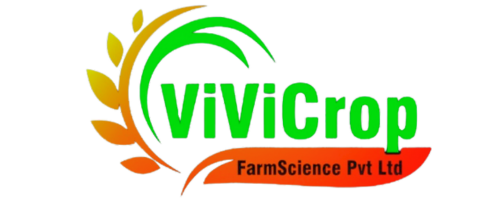
When it comes to agriculture and gardening, the use of fertilizers is essential for promoting healthy plant growth and maximizing crop yields. However, the type of fertilizer used can have a significant impact on not only the environment but also human health. Organic fertilizers, derived from natural sources, offer numerous benefits that make them a preferred choice for sustainable farming practices. In this article, we will explore the advantages of using organic fertilizers and how they positively impact human well-being.
1. Reduced Exposure to Harmful Chemicals
One of the primary benefits of organic fertilizers is their minimal use of synthetic chemicals. Unlike conventional fertilizers, which are often made from petroleum-based substances, organic fertilizers are derived from natural sources such as animal manure, compost, and plant-based materials. This means that organic fertilizers do not contain harmful chemicals such as pesticides, herbicides, or genetically modified organisms (GMOs). By choosing organic fertilizers, we can reduce our exposure to these potentially harmful substances, promoting a healthier environment for both farmers and consumers.
2. Improved Soil Health
Organic fertilizers work in harmony with nature to enhance soil health. They contain a wide range of essential nutrients, including nitrogen, phosphorus, and potassium, as well as micronutrients like calcium, magnesium, and zinc. These nutrients are released slowly and steadily, providing a steady supply of nourishment to plants without causing nutrient imbalances or leaching. Additionally, organic fertilizers help improve soil structure, water retention, and microbial activity, leading to healthier and more fertile soil. By nurturing the soil, organic fertilizers contribute to sustainable agriculture practices that support long-term food production and environmental conservation.
3. Nutrient-Rich Food
Organic fertilizers not only benefit the soil and plants but also have a direct impact on the quality and nutritional value of the food we consume. By providing a balanced and diverse range of nutrients to plants, organic fertilizers help produce crops that are rich in vitamins, minerals, and antioxidants. Studies have shown that organically grown fruits, vegetables, and grains often contain higher levels of essential nutrients compared to conventionally grown counterparts. Consuming nutrient-rich organic food can contribute to better overall health, improved immune function, and reduced risk of chronic diseases.
4. Environmental Protection
Organic fertilizers play a crucial role in protecting the environment. Unlike synthetic fertilizers, which can leach into water bodies and contaminate groundwater, organic fertilizers are biodegradable and pose minimal risks to aquatic ecosystems. Furthermore, the use of organic fertilizers promotes sustainable farming practices such as crop rotation, cover cropping, and composting, which help conserve water, reduce soil erosion, and minimize the need for chemical inputs. By choosing organic fertilizers, we can contribute to the preservation of biodiversity, the conservation of natural resources, and the overall health of our planet.
5. Support for Sustainable Agriculture
By using organic fertilizers, we support and promote sustainable agriculture practices. Organic farming methods prioritize soil health, biodiversity, and the responsible use of natural resources. By avoiding the use of synthetic chemicals, organic farmers create a healthier and more balanced ecosystem that benefits not only the crops but also the surrounding wildlife and communities. Supporting sustainable agriculture helps preserve the integrity of our food system, ensures the long-term availability of nutritious food, and fosters a more sustainable and resilient future for generations to come.
In conclusion, the benefits of organic fertilizers for humans are numerous and far-reaching. From reducing exposure to harmful chemicals to improving soil health, producing nutrient-rich food, protecting the environment, and supporting sustainable agriculture, organic fertilizers offer a holistic approach to farming that prioritizes human health and the well-being of our planet. By choosing organic fertilizers, we can make a positive impact on our own health, the health of farmers, and the health of our environment.












